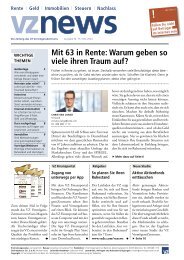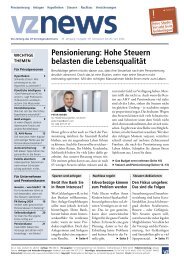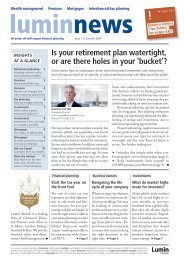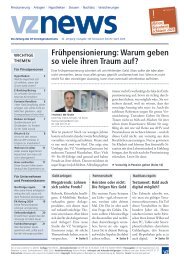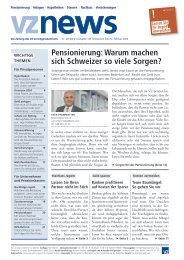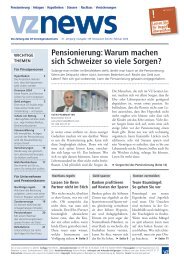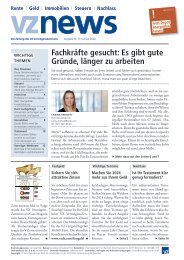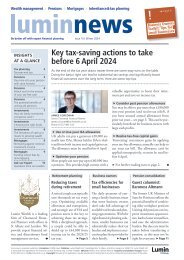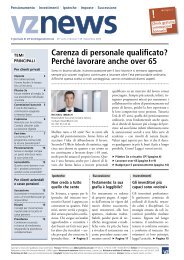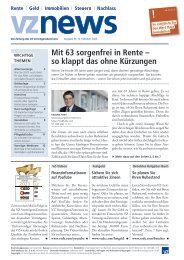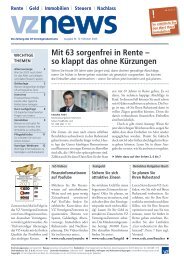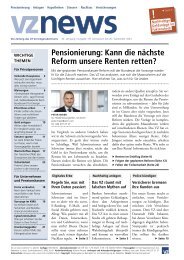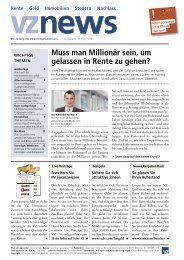lumin news Issue 8 / Summer 2023
You also want an ePaper? Increase the reach of your titles
YUMPU automatically turns print PDFs into web optimized ePapers that Google loves.
<strong>lumin</strong> <strong>news</strong> 8 / summer <strong>2023</strong> Page 3<br />
How higher earners can cut tax<br />
bills with pension contributions<br />
MY TIP<br />
The cut to the additional rate threshold for income tax may make pension<br />
contributions even more attractive for those with large salaries.<br />
SARA MOORE<br />
Senior Financial Consultant<br />
sara.moore@<strong>lumin</strong>wealth.co.uk<br />
Phone 01727 893 333<br />
The additional rate threshold<br />
was cut to £125,140 from<br />
£150,000 from 6 April, so<br />
certain higher earners will see<br />
a larger proportion of their<br />
salary fall into the highest<br />
income tax bracket. But careful<br />
planning can see pension<br />
savers reduce their tax bill –<br />
and boost their retirement<br />
prospects. Some individuals<br />
could save up to £81,000 on<br />
tax in one year.<br />
Avoiding the personal<br />
allowance trap<br />
Pensions can be particularly<br />
valuable for those with earnings<br />
above £100,000. If you<br />
earn over £100,000 per year<br />
the minimum pension tax<br />
relief your contribution will<br />
get is 45%, and for certain<br />
individuals it can be as high<br />
as 60%. Expert, independent<br />
advice can help provide clarity.<br />
This is one of the areas<br />
covered in our free Financial<br />
Health Check (see column).<br />
Cut tax bills with<br />
prudent planning<br />
The standard annual allowance<br />
for pension contributions<br />
has risen from £40,000<br />
to £60,000. Those with an<br />
Achieve large tax savings with a<br />
pension contribution<br />
Assumptions: Income tax on £150,000 net relevant earnings without or<br />
with maximum £60,000 pension contribution.<br />
Income tax<br />
£60,000<br />
£50,000<br />
£40,000<br />
£30,000<br />
£20,000<br />
£10,000<br />
£0<br />
No contribution<br />
adjusted income that’s above<br />
£260,000 will see their annual<br />
allowance tapered down<br />
to a new minimum threshold<br />
of £10,000.<br />
As the example (above)<br />
shows, someone with earnings<br />
of £150,000 could contribute<br />
£60,000 to their pension,<br />
and achieve total tax<br />
savings of £30,000 (including<br />
the top-up contributions<br />
paid by the government).<br />
Certain individuals may<br />
be able to make higher contributions<br />
by ‘carrying forward’<br />
unused annual allowances<br />
from the three previous<br />
tax years. You must use the<br />
annual allowance in the current<br />
tax year first, before carrying<br />
forward from prior<br />
years. Carry forward from<br />
2020/21 must be used in the<br />
<strong>2023</strong>/24 tax year, or it will be<br />
permanently lost.<br />
£30,000<br />
tax savings 1<br />
£60,000 contribution<br />
1 Some of the tax savings may come in the form of the government<br />
paying money into your pension account<br />
Inheritance tax<br />
Your pension can be passed<br />
on to beneficiaries free from<br />
inheritance tax. It may be<br />
possible to repeat this over<br />
several generations, leading<br />
to even greater tax savings.<br />
Pensions passing to beneficiaries<br />
before the age of 75<br />
can also be taken free from<br />
all income tax.<br />
A financial adviser can<br />
help you to optimise<br />
tax allowances. Call 03300<br />
564 446 for more details.<br />
FACTSHEET<br />
Tax-saving tips<br />
for pensions<br />
Request a free factsheet via<br />
enclosed response card,<br />
info@<strong>lumin</strong>wealth.co.uk<br />
or call the Lumin team on<br />
03300 564 446<br />
MARTIN COTTER<br />
Managing Director of<br />
Lumin Group<br />
Statistics show that many<br />
people spend more time<br />
planning for a holiday than<br />
they do on planning for retirement.<br />
Savers can spend<br />
their whole career working<br />
to build up assets for retirement,<br />
but often fail to organise<br />
and optimise these assets.<br />
To use an analogy people’s<br />
finances can often look<br />
like the ‘attic’ at home. For<br />
some their attic is filled with<br />
a disorganised assembly of<br />
items that have been put<br />
away for use at a later date.<br />
For others it is a neatly ordered<br />
and catalogued collection.<br />
Either way, a comprehensive<br />
audit of your attic<br />
can check that everything is<br />
in good condition and working<br />
order for when it is<br />
needed during retirement.<br />
My Tip: A Financial<br />
Health Check* with a financial<br />
adviser can analyse all<br />
the contents of your attic<br />
and outline where improvements<br />
can be made to fully<br />
optimise your wealth for<br />
retirement. To book a complimentary<br />
Financial Health<br />
Check please scan the QR<br />
code, or call 03300 564 446.<br />
investable assets<br />
*Suitable for<br />
those with a<br />
minimum of<br />
£200,000 of





